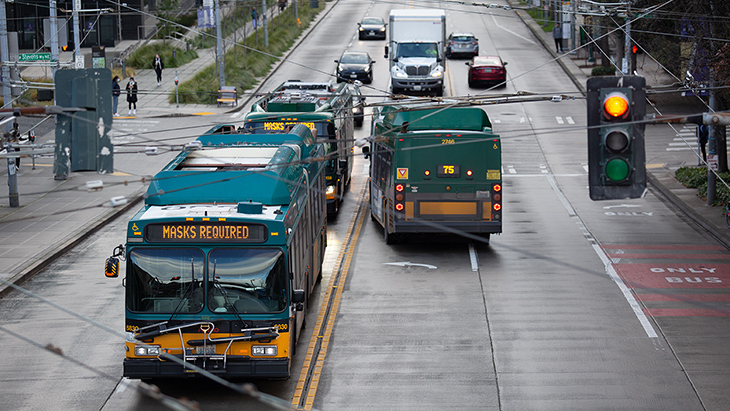
During the last several months, I started working in the office at the university, not just behind a computer, but in an actual office! It’s quite a change considering the last two years, but I’ve enjoyed meeting in-person again, even the passing conversations with coworkers has been valuable (they are just great people in general). I have options for how to travel, and for the most part, I have a couple of days that it makes sense to be on-site.
When I talk with friends and colleagues who have been teleworking the past two+ years, the question keeps coming up, “Are you back in the office?” The answers vary, some are for at least a day or two, some aren’t. It seems like folks are still trying to figure it out. This is a really interesting time for people who are trying to understand the “new normal” for commuting, and there’s still more to learn about how people travel.
We know that telework is poised to play a large role for how people accomplish their work. In a recent Mobility Innovation Center project, Dr. Xuegang (Jeff) Ban modeled several scenarios that suggest this would be the case.
Now with offices reopening, consider these recent observations:
- Not everyone is rushing back. Some employers are allowing hybrid or remote work.
- Transit ridership is still below pre-pandemic levels on King County Metro buses and Sound Transit
- Many would consider finding a new job if required to come back to the office full time.
What does this mean for downtown Seattle? There’s a desire to have people return to work, enjoy the area, and reinvigorate the economic activity which makes the city vibrant. But it’s unclear how, when, and why people will take trips into the city center.
Even if many are teleworking some days and in the office others, will they return to transit or drive alone? Will carpooling/vanpooling be a thing again? We’ve seen a shift in commute habits in 2019 and 2021 due to the pandemic. What we don’t know is how often people will continue to telework and if they go back to the office a couple of days a week, what effect that will have on the transportation network.
Better commute reporting supports workers in the new normal
This summer, the Mobility Innovation Center launched a new project to gain better insights into employee commute patterns and motivators. Led by Dr. Qing Shen of the UW, with support from Dr. Anne Vernez Moudon, and Mark Hallenbeck from the Washington State Transportation Center, the team will develop a new survey with Commute Seattle for businesses in the downtown core. After the results come back in the fall, the findings will be analyzed and shared next spring to help downtown employers and transportation providers better support workers, both those who can telework and those who cannot.
We know this is a moment in time in which both transportation and employment needs are changing. With this work, our goal is to help our community navigate through these shifts and explore solutions that will be most effective for the most people in this new normal.